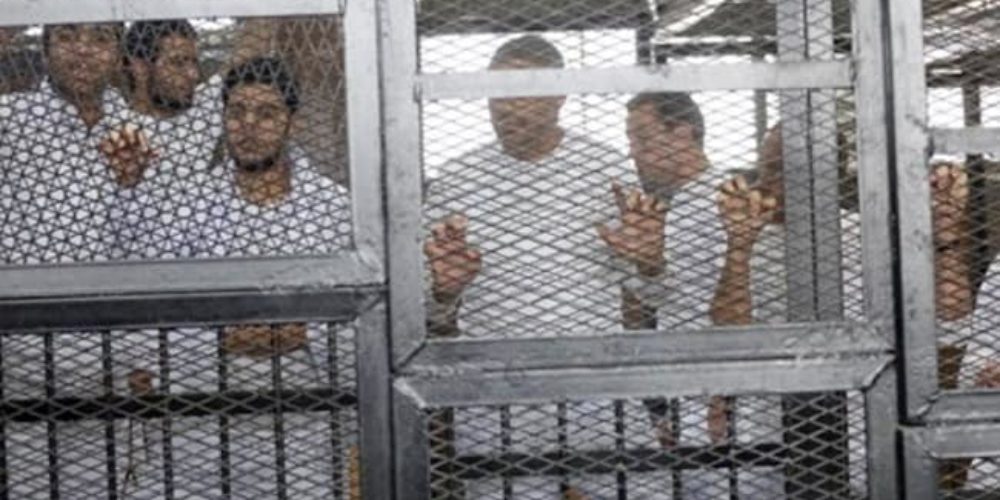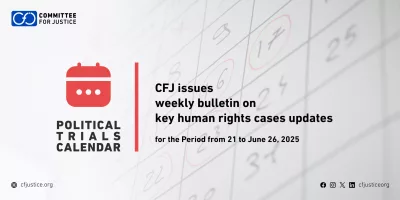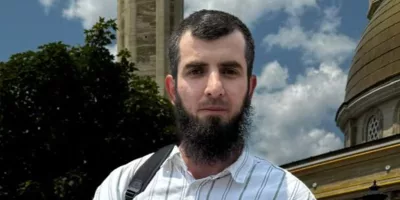The Committee for Justice (CFJ) condemned the verdicts issued on Case No. 9115 of 2016, South Giza, known in the media as the “Helwan Microbus Cell” case. The Egyptian Court of Cassation has upheld the death sentences and life imprisonment issued in the case despite the trial’s lack of due process.
The Egyptian Court of Cassation had rejected the defendants’ appeals in the case, and upheld the death penalty and life imprisonment rulings. The 23rd Chamber of the Cairo Criminal Court, headed by Judge Hussein Abdel Karim Kandil, decided on November 25, 2019 to sentence seven defendants to death by hanging, while three others were sentenced to 15 years in jail, 15 were handed 10 years, and seven others were acquitted.
The Court of Cassation held its first session to initiate the appeals submitted by the defendants on February 8, 2021, and issued its final judgment in the case on April 13, 2021, rejecting the appeals submitted by 18 defendants, four of them were defendants whose death sentences were upheld. The criminal case of the fifth defendant sentenced to death had lapsed due to his death as a result of being executed in connection with another case, and 14 defendants had their temporary hard labour imprisonment upheld.
The indictment issued by the Egyptian Supreme State Security Prosecution included accusations against 32 defendants as follows: from 2015 until 4 October 2016, in the governorates of Cairo and Giza, they allegedly joined a banned group working to prevent state institutions and public authorities from carrying out their work and assaulting personal freedom and social peace. They provided some of the defendants with shelter and concealed firearms, which resulted in the killing of one senior officer and seven junior police officers in Helwan on January 9, 2016.
CFJ added that the case began with the extrajudicial killing of four of the accused by the Egyptian Ministry of Interior during their arrest.
Ahmed Mefreh, Executive Director of CFJ, explained that “the murder operations carried out by the Egyptian security services against those accused of terrorist crimes during their arrest are operations marred by a lot of ambiguity, and some of them have been classified by international mechanisms as extrajudicial killings.”
Then, in June 2017, the Criminal Court in the Counseling Chamber included the defendants on terrorist lists based on the accusations only, in a clear preemption of court rulings, and before scrutinising the accusations and their validity or seriousness.
CFJ indicated that this listing had legal implications, including preventing the accused from traveling for a period of five years, withdrawing their passports, freezing their money, and laying off those who work as civil servants while prohibiting them from working in any government jobs or running for any public office.
“CFJ also monitored many legal and humanitarian violations against the accused, and the prosecution and the court overlooked the opening of investigations into them, in violation of the most basic standards of justice, which Egyptian courts lack at this time,” Mefreh said.
The Fair Trials team, which is one of the organization’s main projects, monitored other violations in the case, including that all the accused were arrested by the National Security Agency at different dates and locations than those mentioned in the arrest records issued by the investigation officers, and before the issuance of the prosecution’s permission, and some of them submitted telegraphs indicating the date of their previous arrest that preceded the issuance of the prosecution’s warrant.
The defendants were also subjected to enforced disappearance from the date of their arrest until the date they were brought before the Public Prosecution, and they all mentioned that they were subjected to severe torture inside the headquarters of the National Security Agency, to extract the confessions based on which they were referred to trial. But neither the prosecution nor the court paid any attention to the violations, and the torture allegations have not been investigated.
Also, in the first session of the investigations, the prosecution investigated the accused without the presence of any lawyer to defend them, which is a violation of the text of Article 54 of the Constitution of 2014, which explicitly states: “The investigation with the accused shall not begin without the presence of his lawyer.”
The CFJ team explained that the prosecution and the court neglected the investigation and scrutiny of the accusations, facts and defenses submitted by the accused, especially in the incidents of torture, the dates and places of arrest, and that some of the alleged crimes were carried out in public places where there are surveillance cameras, and they were not examined or used to identify the perpetrators or to clarify the presence of the accused or not during the events.
As a result, CFJ considered that the violations it monitored in that case deems the court unjust, because it does not meet the standards and principles of a fair trial approved by the international community. Furthermore, preempting judicial rulings and including the accused in the terrorism list based on unresolved accusations is firm evidence that the Egyptian judicial system lacks the minimum elements of justice and transparency.
CFJ has demanded the reversal of those sentences, especially death sentences. It also calls for the defendants to be tried before a new court that meets the principles of a fair trial, and before their natural judge.






